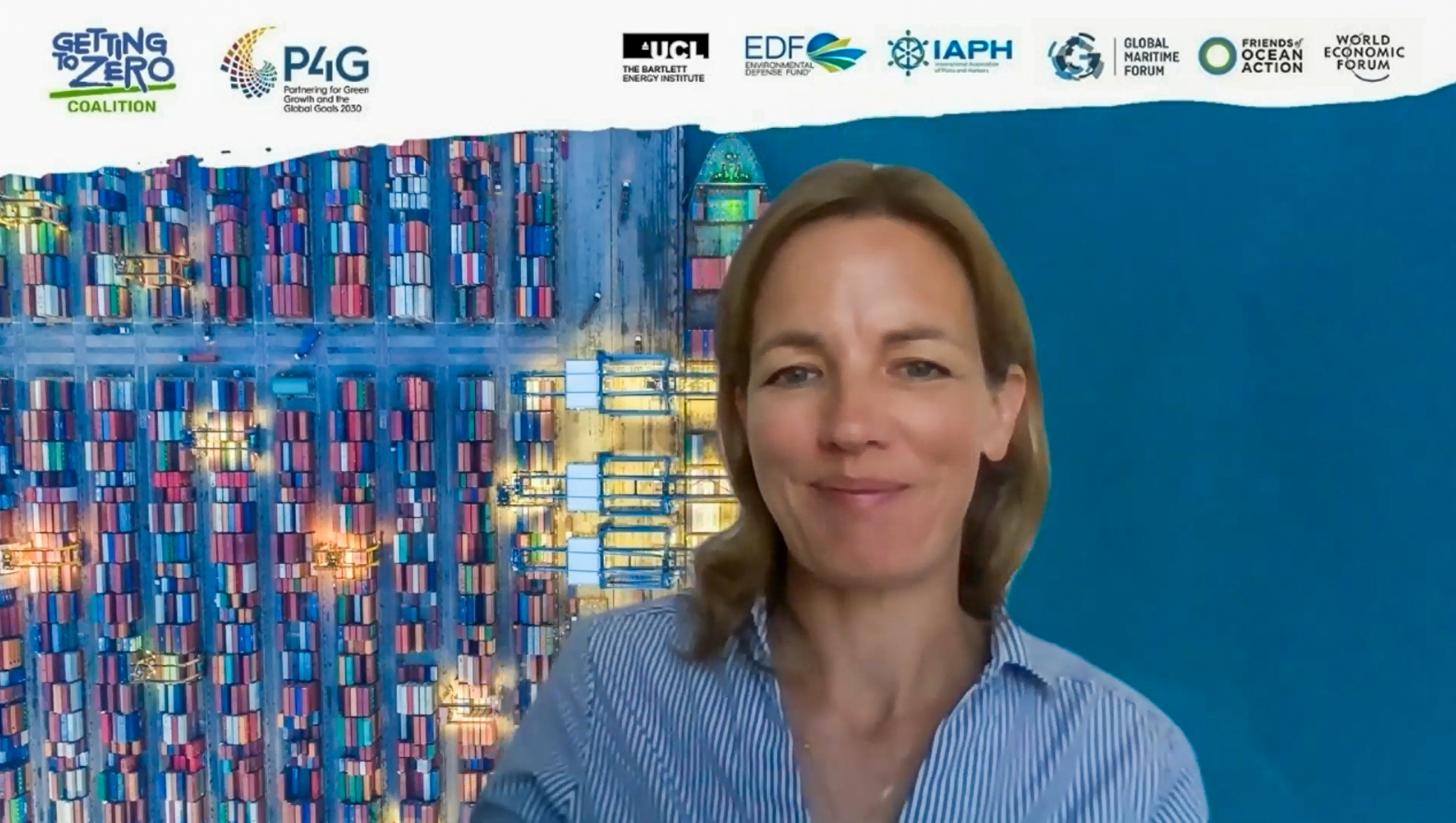Decarbonizing Shipping in P4G Partner Countries

Subject
Events
Publication Date
2022-08-31
Partnership
About
P4G’s Getting to Zero Coalition partnership developed a model to get commercially viable deep sea zero emission vessels into operation, a key step forward in accelerating the shift to zero emissions shipping. On July 23, the Global Maritime Forum hosted the “Decarbonizing shipping: Strategic opportunities for South Africa, Mexico and Indonesia” webinar to reflect on the outcomes of the Getting to Zero partnership. Moderators and panelists highlighted the key findings and recommendations from the project’s recently published reports from the three countries of implementation: South Africa, Mexico and Indonesia.
Basilio Araujo, Deputy Minister Coordinating Ministry of Maritime Affairs and Investment in Indonesia opened the panel on public sector involvement, explaining how Indonesia’s discussions of maritime decarbonization have evolved during the partnership. Citing Indonesia’s ambitious climate goals, Ntuli noted that the shipping sector contributes to 19% of emissions. This has prompted Indonesia to reach out to shipowners to collaborate on reducing emissions while engaging with stakeholders to increase involvement in the project. Furthermore, as Indonesia prepares to host the G20, the country is incorporating shipping decarbonization into its preparation events to spark collaboration among the public sector to address the problem.
Dumisani Ntuli, Chief Director, Maritime Transport & Policy Legislation Department of Transport in South Africa reflected on South Africa’s developments in maritime decarbonization, acknowledging that the Getting to Zero Partnership helped spark discussions around how South Africa could contribute to decarbonizing shipping. This transition has the potential to reduce environmental impacts while addressing South Africa’s unemployment rates by providing green jobs. The country also has great potential to develop wind and solar energy, so experts are exploring how to advance the technologies so they become a truly sustainable energy source. Most of all, the biggest enabler of shipping decarbonization is green hydrogen, tying into the country's green hydrogen plan.
To provide an overview of the project’s work, Aly Shaw, Senior Researcher, University College of London, Energy Institute shared the partnership’s findings. Shaw revealed how – for the countries involved – shipping decarbonization proved to either be a challenge to development or an opportunity to engage in sustainable development. Focusing on the latter, Shaw’s opportunity spotlights highlighted Saldanha Bay, South Africa; Baja California, Mexico; and Indonesia’s extensive small boat fleet, with the recommendations addressing four areas of shipping: ports, finance, policy and industry.
“Collectively, we’re all on the doorstep of shipping transition,” said Shaw. “Shipping has enabled global trade and development for hundreds of years. However, … it now counts for close to 3% of annual CO2 emissions without proportions set to rise in the future. Under a business-as-usual scenario, shipping is not currently aligned with the Paris Agreement temperature goal and must transition to new fields and technologies as soon as possible.”
Discussing what the industry can do to capitalize these opportunities, Kaashifah Beukes, CEO, Saldanha Bay Industrial Development Zone explained how the private sector is catalyzing support for shipping decarbonization, which has seen shifts in tangible policy following these support initiatives. The private sector is seeing the market signals and is responding by offering guidance and information to project developers, refining their projects in the process to make them more specific. To continue this change, there needs to be a continued focus on project developers, but also, given South Africa’s challenges with inequality, technology exchange across countries is essential.
Cipu Suaib, Business Development Manager, HDF Energy followed with a perspective on how Indonesia can electrify its small boat fleet. Suaib explained that the big islands of Indonesia, including Sumatra, Borneo, Java, use large coal plants which drives core energy down, leading HDF Energy to target the small islands of the east. There, the company has found a market for renewable energy and the electrification of the fleet since those islands are diesel-dependent, but issues with high optics cost and securing supplies create inaccessibility. There are ongoing discussions with organizations that can collaborate across sectors to develop a pipeline of energy solutions for small fleets.
For Mexico to leverage its potential to advance this transition, Nelson Mojarro, Director, BRETFIN U.K. noted the importance of the Getting to Zero report as a step to putting the maritime sector directly on the agenda. “Mexico has the opportunity to participate in the global energy market,” said Mojarro, but it’s trickier in terms of the landscape for renewable energy projects despite the potential for solar and wind, among others. With the country in the early stages of its transition, enabling stakeholders who can act and participate with policy action behind renewable energy is crucial. Mexico is eyeing electrification as an early route with green hydrogen and ammonia following. As Mexico prepares to adapt a decarbonization agenda for maritime transport, collaboration will be essential to ensuring success.
Patrick Verhoeven, Managing Director, International Association of Ports and Harbours offered a global perspective, sharing how he’s seen the growth and appetite for decarbonizing shipping in the private sector in other countries. Verhoeven discussed how ports can play two major roles: bunkering zero and low-carbon fuels for shipping and facilitating the trade and transport of new and renewable energies. He shared how there are more projects ongoing in developed countries, but there needs to be more outreach about decarbonizing shipping in lesser developed countries. For this to happen, the government needs to back the transition and promote more awareness about the challenge and solutions.
To address the impacts of the partnership, Ian de Cruz, P4G Global Director shared how P4G needs entrepreneurial solutions that build on the learnings from the Getting to Zero Coalition in Phase 2. “The next step in the partnership’s journey is to find a way to take model further and make it even more actionable to translate these feasibility studios into financially sustainable business models. Models that can have enduring impact across countries’ economies, ensuring affordable and efficient clean energy in sectors that can catalyze changes in freight, logistics and transport systems.”
Watch the full recording here.
